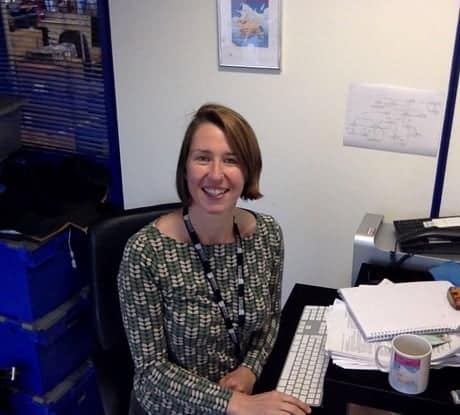“Don’t be limited by conventional career choices. Mathematicians are everywhere!”
Organisation:
University of Bristol
Number of years in current position:
Less than one
Qualifications:
PhD in Mathematical Epidemiology, MSci Mathematics and A-levels: Maths, Chemistry and German.
Briefly describe the organisation you work for:
I am based in the School of Social and Community Medicine. Most of the work in the department concerns the health of populations and involves collaborations between doctors, biologists, mathematicians and statisticians.
Explain what you do on an average day at work:
On an average day, I look at and try to understand epidemiological data in order to try to characterise outbreaks of infectious diseases. I do this by calculating the statistics of an outbreak (how fast is it spreading? who is most susceptible?), reading scientific papers (how does this outbreak compare to previous ones?) and by creating mathematical models to describe the outbreak (can I “re-create” a similar epidemic from first principles?)
Once I have got some results I chat to colleagues at work, over the phone, via email or at conferences, and we collectively develop ideas about what is happening.
What do you like most about your job?
I’ve written the answer to this question several times as there are lots of nice parts to working in this area! Dealing with infectious diseases is often on the political agenda – I like being involved in the policy debate – providing evidence that policy makers and politicians can use to make decisions.
What stimulated your interest in maths, and when?
I always liked maths at school but thought that it wouldn’t lead to a job that could benefit society, so I went to university to study medicine instead. After a year I switched to a maths degree and thought I’d worry about jobs later.
What influenced your career choice?
My career choice has come about by my interest in public health and what I’ve found I can do. I’m interested in other things as well, but this job seems to come most naturally.
Which skills do you consider to be essential for your job?
A background in maths or at least a strong mathematical tendency makes the job easier. You need to be quite self-motivated as most of time you’re defining your own goals and deadlines.
Any advice you may have for other individuals considering your career path:
My advice to budding mathematicians interested in changing the world is: don’t be limited by conventional career choices. Mathematicians are everywhere! After my maths degree I went to see a careers advisor about how I could apply maths to benefit society and was asked if I’d considered actuarial work. Get in contact with someone with a similar background who is doing something you’d like to do. That’s how I found my PhD supervisor.
Your future career plans:
Since finishing my maths degree I’ve become more and more interested in the applied side of modelling. In the future I’d like to work more closely with policy makers and be able to answer questions that are useful for policy. I suppose my dream is to give evidence to a select committee!






